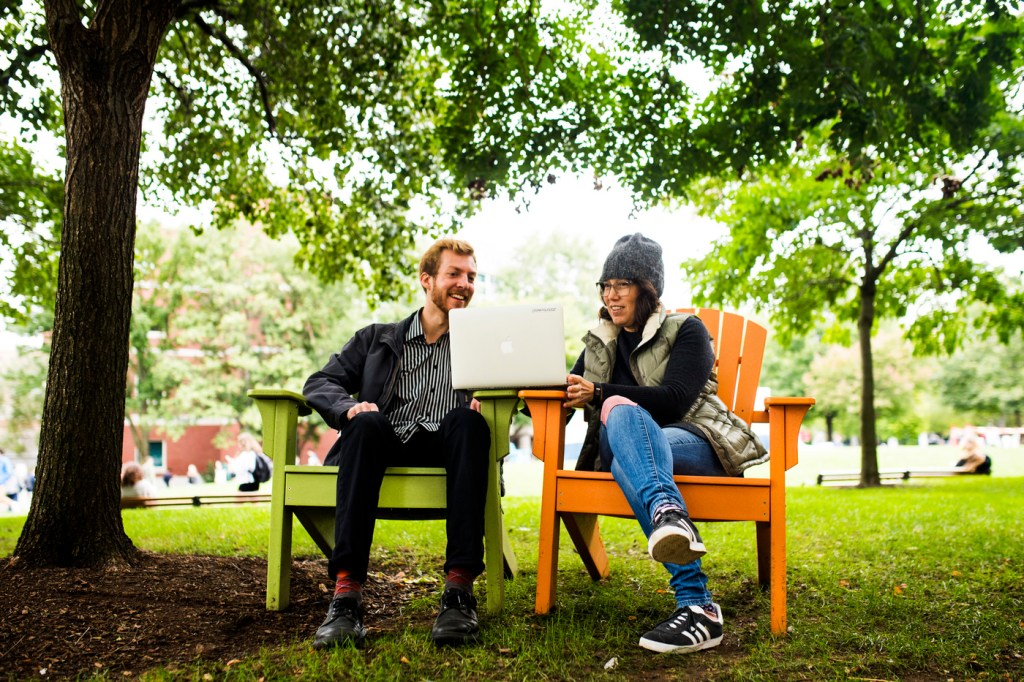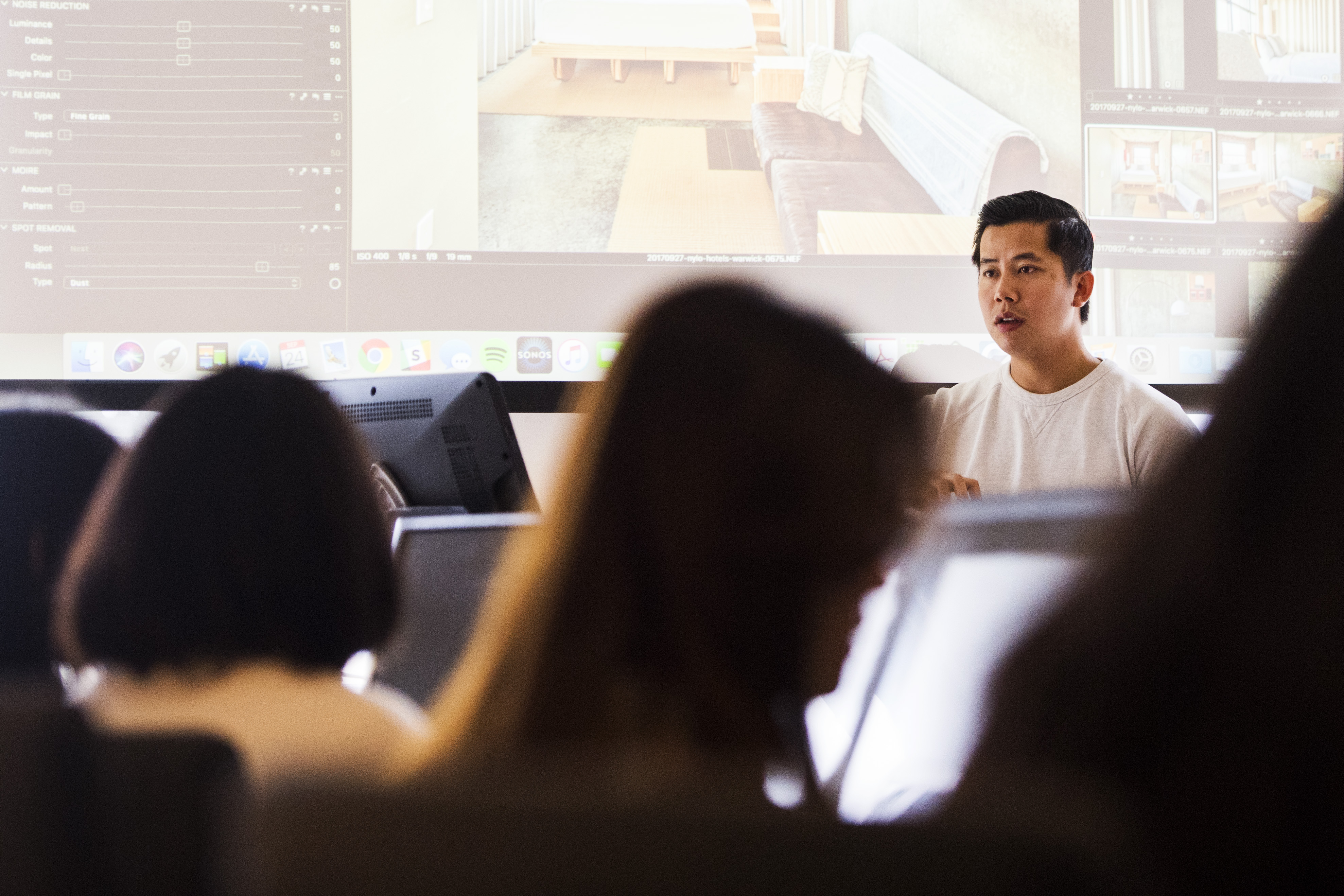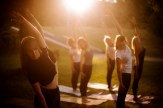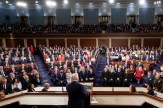From mentees to mentors, two Northeastern art professors share what they’ve learned along the way

Though they’re both art professors at Northeastern, Julia Hechtman and Tony Luong work differently.
Hechtman specializes in interdisciplinary art, such as video and animation. Luong is a photographer by trade.
But they have something in common: Both serve as faculty mentors. And when they rewind their artistic journeys to the beginning, there’s something else they share: They’ve both had mentors of their own.
Making a maker
“My Photo 1 professor, Adrienne Salinger, was my everything,” said Hechtman. “She’s the reason I became a photography major.”
When Hechtman inherited a 35-millimeter camera because her mom didn’t know how to use it, she realized she didn’t know much, either. Salinger’s class at Syracuse University changed that, drawing Hechtman away from her current major and into the arts.
Once Hechtman was in a graduate art program, she asked Salinger to be a visiting artist at her school; Salinger told her upon arrival that the program was the wrong fit. Again, Salinger’s advice reoriented Hechtman, who left the program to find one better suited to her interests and skills.
“She was not afraid to tell me the hard truths, and I used her very much like a truth-telling mirror,” said Hechtman. “That was what she gave to me that nobody else did.”
I try to make sure that I have a soft touch with my students so they feel seen and unthreatened and unjudged. That’s the crux of mentoring: providing safety and criticality in the same space.
Julia Hechtman, assistant teaching professor
Luong, who struggled academically in high school, found similar direction in a classroom. What began as a hobby of photographing his friends on bikes and skateboards took shape in an audiovisual course, where he was assigned more structured photo assignments and learned skills he could use with his friends.
Years later, he met Claire Beckett, a professor at the New England Institute of Art. Beckett helped him identify what he was after—both “in art and the world,” he said.
“I was still doing those skateboard pictures,” Luong recalled with a laugh, but Beckett advised him to dig deeper. “There must be some kind of personal tie in your own life that you feel compelled enough to take pictures of,” he remembers her saying.
After some soul searching, Luong landed on something. “I realized that, being Asian American, I was the only person in my family born here,” he said. Portraying cultural identity soon became his entry into more personalized work.
Matthew Monteith, a professor at the Massachusetts College of Art and Design, then took on Luong as a mentee, a more professional relationship that has helped Luong find balance between his art and other commercial work.
“Thinking about his career, he had a similar trajectory,” said Luong, “so I took to him.”
Now, Hechtman and Luong have students taking to them.
Flipped scripts
The mentorship that Hechtman offers isn’t necessarily a replica of the kind she received. She’s translated the lessons that were useful for her into what she feels her students need.
Sometimes, that’s simply an ear.

“Students have really changed in terms of what they want to hear from faculty,” said Hechtman. “I try to make sure that I have a soft touch with my students so they feel seen and unthreatened and unjudged. That’s the crux of mentoring: providing safety and criticality in the same space.”
Luong also finds himself on the giving end.
“Every semester that I’ve taught at Northeastern, there ends up being two or three students who really take what I’ve mentioned or put out there,” said Luong. “Similar to how Claire inspired me, they’ve found something that they feel inclined to pursue further.”
Since some of Northeastern’s basic photography courses are open to students outside of art majors, Luong often teaches and advises students who have no picture-taking experience. Some may just be curious; others may want to combine photography skills with another passion. In either case, Luong doesn’t try to define their path.

”No one wants to be told what to do,” said Luong. ”I feel as though I’m there to—based on my instincts—figure out what it is they want to say and what their strong suit is or what they feel most motivated to speak about or photograph.”
Mentorship is fluid, especially in a field less quantitative than psychology or finance. So when asked how long she’d been a mentor, Hechtman paused.
“Gee, I don’t know. It depends how you define that word,” she said. “I would say every faculty member is a mentor—and I believe that.”





